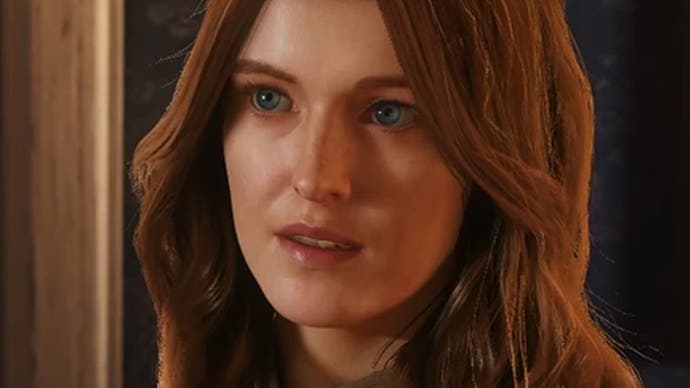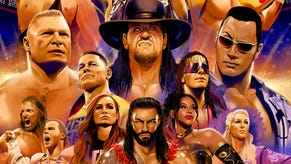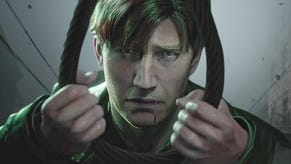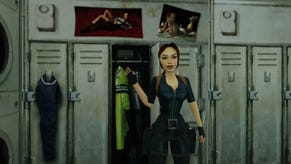Marvel's Spider-Man Mary Jane model calls out fans who "crossed boundaries"
"I came into work this morning and immediately felt unsafe."
Stephanie Tyler Jones, the model who provided her likeness to Mary Jane for the recent PlayStation Spider-Man games, has spoken out after "some followers crossed boundaries".
In a message posted to Instagram, Jones said one fan had left multiple voicemails "wanting to speak with me and requesting I call back" on the answering machine of her workplace.
Jones said the behaviour was "unacceptable" and amounted to stalking.
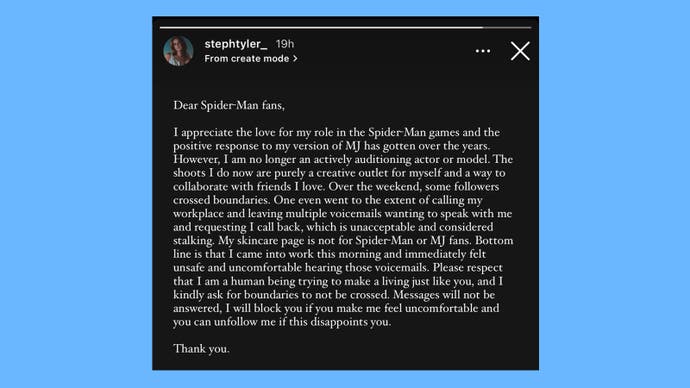
"I appreciate the love for my role in the Spider-Man games and the positive response to my version of MJ has gotten over the years," Jones wrote. "However, I am no longer an actively auditioning actor or model.
"My skincare page is not for Spider-Man or MJ fans. Bottom line is that I came into work this morning and immediately felt unsafe and uncomfortable hearing those voicemails."
Jones' resume includes motion capture work for the original Spider-Man game back in 2018, and additional likeness scans for Mary Jane in Spider-Man 2.
"Please respect that I am a human being trying to make a living just like you, and I kindly ask for boundaries to not be crossed," Jones concluded. "Messages will not be answered, I will block you if you make me feel uncomfortable and you can unfollow me if this disappoints you."
James Stevenson, community director at Spider-Man developer Insomniac Games, subsequently issued his own call to players via a post on X.
"I shouldn't have to say this, but don't harass game developers, voice actors, mo-cap performers, or face models (or anyone else). Don't message them directly, and especially don't track down phone numbers or personal information in an attempt to contact them."
Last year, a GDC survey found that 91 percent of game developers were concerned by harassment and toxicity from players, with almost half reporting that they had experienced it personally.
"I think setting boundaries clearly and publicly, as well as calling on the community itself to help, can be effective," one respondent said. "Large companies seem to fear that their toxic players are their fanbase without appreciating that they are impacting much larger numbers of their actual fanbase."
